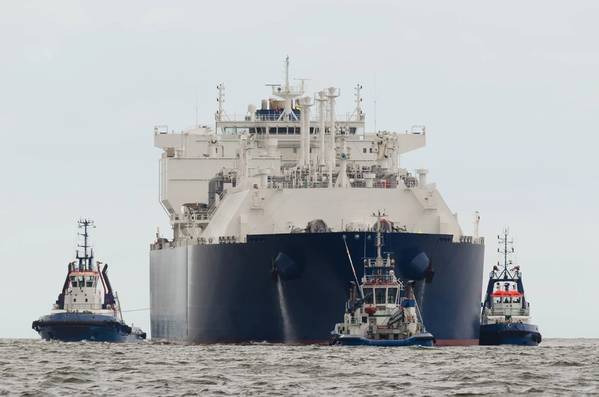
Germany has refused to allow a Russian LNG shipment at the Brunsbuttel terminal in northern Germany in line with Berlin's policy not to import LNG from Russia, industry sources said on Thursday.
The Financial Times reported earlier on Thursday that Germany's economy ministry BMWK had instructed the Deutsche Energy Terminal not to accept any deliveries of Russian LNG after the company informed Berlin that its Brunsbuttel import facility was set to receive a Russian cargo on Sunday.
It was not clear who ordered the shipment. Three LNG tankers recently left the Yamal LNG facility in Russia and are awaiting orders, LSEG data showed.
"The cargo was destined for Brunsbuttel and someone tried its luck and it seems wanted to check how Berlin would react," an industry source told Reuters, adding that this is "a bit of political PR stunt".
Germany, Europe's largest economy and once Russia's largest importer of natural gas, has never directly imported Russian LNG and has stopped buying Russian pipeline gas following Moscow’s invasion of Ukraine.
It has relied on LNG from the United States and elsewhere as well as on pipeline gas from Norway to replace Russian gas.
"Germany does not import Russian gas as a matter of principle and it is also clear to the BMWK that this must not happen via German LNG terminals," a BMWK spokesperson said.
In February, a spokesperson for the ministry said that German companies that import LNG or move it to Germany have committed to ensuring that no Russian LNG goes to Germany when they buy on the market.
A Reuters analysis of data in April found that more than a tenth of the Russian gas formerly shipped by pipeline to the European Union has been replaced by LNG delivered to EU ports, mainly in Spain, Belgium, and France.
While Germany no longer directly imports Russian gas, it is an ultimate destination for some of the Russian gas that is injected into pipelines by some other EU countries via Belgium's Zeebrugge and other terminals.
Last year, Germany imported 48.6% of its gas via pipeline from Belgium, France and the Netherlands, according to the federal network regulator Bundesnetzagentur.
(Reuters - Reporting by Gnaneshwar Rajan in Bengaluru, Marwa Rashad in London and Markus Wacket in Berlin; Editing by Kim Coghill and Susan Fenton)



